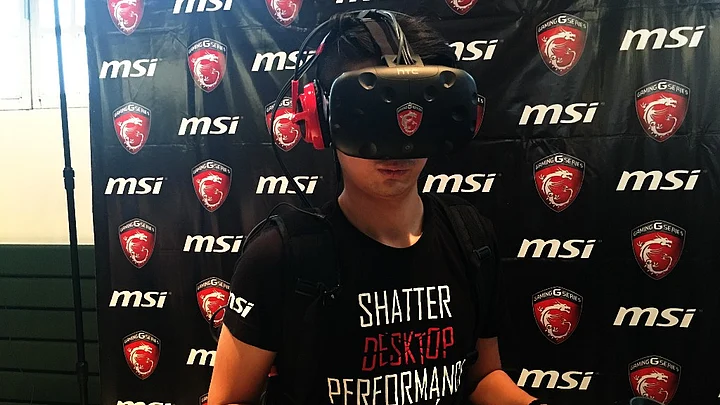TecQ is our weekly round-up of tech stories.
1. MSI VR Gaming Backpack Now Available in India, But Mind the Price
2. Pay 15% More for E-Books, Netflix & iTunes From 1 December
The Ministry of Finance (MoF) in India has decided it’s time to make global entities like Amazon, Netflix pay up for making money in the country. Service tax of 15% will soon be applicable on products that we buy online.
This means that from 1 December onwards, you’ll be paying 15% more to buy e-books from Amazon, cloud storage on Google Drive and even the Netflix subscription that gives you access to popular serials like the Stranger Things.
Read the story here.
3. iBook 2.0: Own ALL Of Apple’s Products for Just $299... Kind of
2016 has been a particularly eventful year for everyone, especially Apple. Not only did they launch a small iPhone, two regular iPhones, new Macs, a new iPad, a new Apple Watch.... now they’ve launched the iBook 2.0.
The iBook 2.0 is the revolutionary Apple product that might be the most affordable one yet. Don’t believe us?
Read the piece here.
4. Currency Crisis: Paytm or UPI, Which One Should You Use to Pay?
With cash nowhere to be seen and long queues outside banks and ATMs, a lot of people have been forced to switch to cards and mobile wallets to pay for basic stuff.
But mobile wallets like Paytm and MobiKwik have come our rescue in these testing times. You can book a cab, pay for food and even buy grocery nowadays by paying with cards.
However, this convenience is not available to those without cards, and for those people, the National Payment Corporation of India (NCPI) had announced the Unified Payment Interface, or UPI.
The UPI could make it easier to refill your virtual wallet and use it - but it could also become easier to directly transact with a seller. In that case, would people still require digital wallets?
Read the story here.
5. Why WhatsApp’s Global Launch of Video Calling in India Is Big
WhatsApp just announced their video calling feature in a global launch event in New Delhi. This is a big deal. Not just feature wise, but the fact that the global messaging giant chose India to launch this.
When you run an instant messaging app with a billion-plus users all over the world, everything is done for a strategic advantage. And here are the reasons why WhatsApp is knocking on India’s doors.
(At The Quint, we question everything. Play an active role in shaping our journalism by becoming a member today.)
